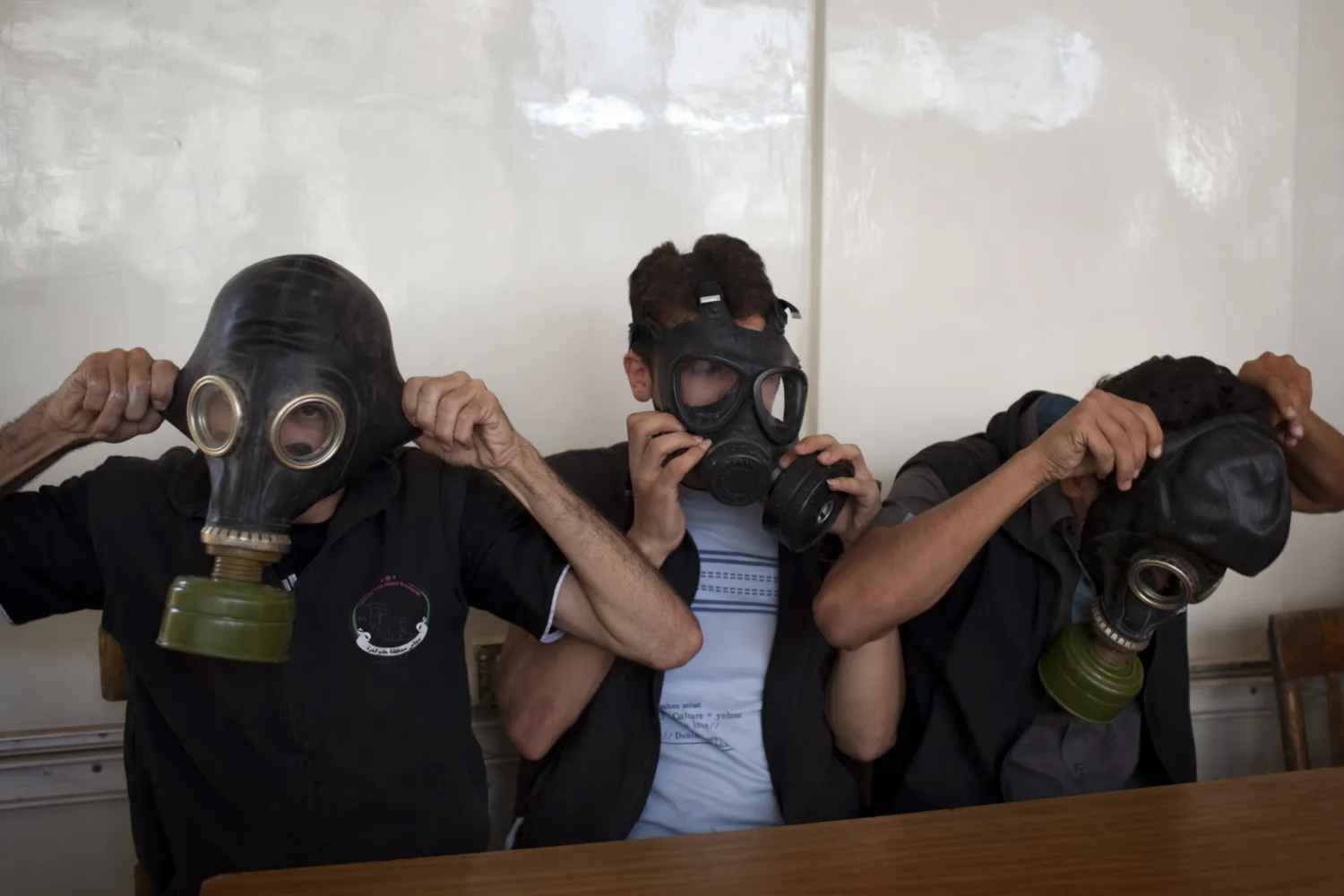Russia strongly condemned US statements refuting Moscow and Damascus’ claims on the recent chemical attack on Syria’s Aleppo on November 24, indicating it has irrefutable evidence that the attack had taken place.
The Russian Defense Ministry said Saturday the US State Department statement was an attempt to vindicate “international terrorists operating in Idlib linked with pseudo-rescuers from the White Helmets who have back-stabbed their Western patrons with their provocation."
Moscow has conclusive evidence proving that militants used munitions with toxic agents against civilians in Aleppo, said the Ministry, without providing further details.
Earlier, Washington refuted claims that a chemical attack had taken place in Aleppo in November, saying Bashar Assad’s regime and Russia falsely accused “the opposition and extremist groups of conducting a chlorine attack in northwestern Aleppo.”
Russia further noted that the US statement is meant to hinder an "unbiased investigation" into the attack by the Organization for the Prohibition of Chemical Weapons (OPCW).
Furthermore, the Ministry indicated that US allegations may be "geared toward diverting attention of the world community from the crimes committed by US warplanes in eastern Syria,” citing the bombing of Hajin that left dozens of civilians dead.
The State Department strongly refuted the narrative, asserting it has credible information that pro-regime forces likely used teargas against civilians in the city.
“The United States has information indicating Russian and Syrian personnel were involved in the teargas incident, and believes that both countries are using it as an opportunity to undermine the ceasefire in Idlib.”
The statement noted that Washington is deeply concerned that pro-regime officials have maintained control of the attack site in its immediate aftermath, allowing them to potentially fabricate samples and contaminate the site before a proper OPCW investigation.
“We caution Russia and the regime against tampering with the suspected attack site and urge them to secure the safety of impartial, independent inspectors so that those responsible can be held accountable,” warned the statement.
Similarly, Britain's Foreign Office said it had "seen nothing to support the claims" made by Russia and Syria.
"The UK assesses it highly unlikely that chlorine was used in this incident, as the regime and its Russian allies have claimed. It is highly unlikely that the opposition was responsible," a statement said.
The Office noted that it is likely that this was either a staged incident intended to frame the opposition, or an operation which went wrong and from which Russia and the regime sought to take advantage.
In turn, the Russian Embassy in Washington issued a statement through its Facebook page saying it does not rule out that the Department of State’s allegations about the recent chemical attack are aimed at distracting the public attention from the crimes of the US aviation in eastern Syria.
Speaking on condition of anonymity, a US official said that suspicions were raised when Russia and Syria immediately put out similar official media accounts after the attack. He added that witnesses did not report the odor of chlorine that is characteristic of such attacks.
"Technical analysis of videos and images of munition remnants indicate the mortars portrayed in Russian media are not suitable for delivering chlorine," the official noted.
The Syrian regime has been repeatedly accused of using chemical weapons in the Syrian war, including a sarin gas attack in April 2017 in the town of Khan Sheikhoun that killed more than 80 people.
In October, the OPCW accused Damascus of the sarin gas attack.









